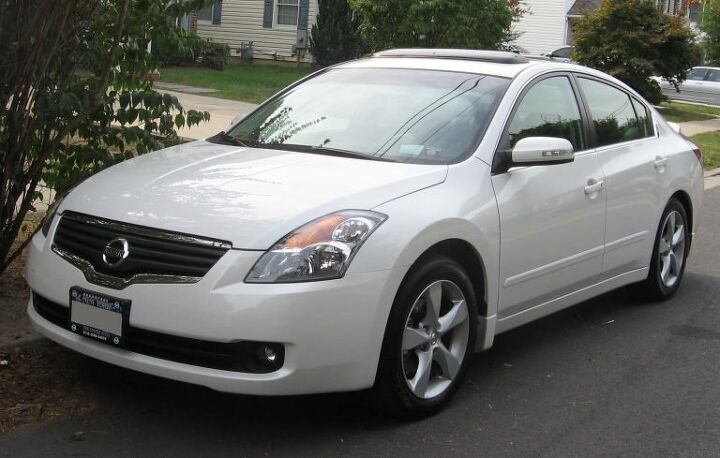No Fixed Abode: Criminal Minds of Traffic and Credit

A few years ago I heard the phrase “future time orientation” and in that moment the scales, as they say, dropped from my eyes. I’d always known the concept but I didn’t realize it had an actual name. Well, it does, and that phrase is “future time orientation.” Put simply, it’s how real the future is to you, and how much thoughts of the future affect your present behavior.
The more I’ve read about future time orientation, the more I realize it is pretty much the defining characteristic of a human being. The more real the future is to you, the harder you will work, the more you will save, and the more you will moderate your behavior. Lack of future time orientation damn near qualifies as a mental illness and it turns you into a loser in any case. I can speak personally about that.
When my grandfather was 45 years old, he was just eight years from a fully-funded retirement that would see him driving Cadillacs and enjoying life without reservations until he died well into his nineties. When my father was 45, he had practiced 20 years of fiscal discipline. After twenty further years of fiscal discipline he retired to a plantation where he aimlessly steers a Benz between the gym and the golf course every day.
I, on the other hand, have more than one hundred pairs of dress shoes and I’ve spent enough money on racing to pay off my house three times over. I will have to work until the day I die because every time I’ve had money in my pocket it’s turned into a Porsche or a Kawasaki or a Savile Row suit or a massive house party with free liquor and steaks for 150 people. I have almost zero future time orientation. The only reason I pay my bills is because I’ve always managed to have a woman in the house to remind me to pay my bills. Otherwise, they wouldn’t get paid and I would just buy a bunch of ZX-10RR Winter Livery Snowflake Editions. Actually, as of this writing I think my son has more money in the bank than I do, and he is eight years old. He will be retired at 54. He can come visit me at the Wal-Mart, where I will be a greeter.
As low as my future time orientation is, however, there are people out there who are even worse. And you can actually identify them from a distance on the freeway.
I haven’t paid a loan, credit card, or any other financial agreement late since 1995 — but every one of the dozen-plus times I’ve been in the hospital for impact trauma of one type or another, I’ve had “balance billers” come after me for mystery medical bills of dubious provenance. When I refuse to pay them, they report me to the credit bureau. In part, this is why I’m not a big fan of so-called Obamacare, which has cost me nearly $30,000 of additional cash outlays at hospitals compared to my employer-provided health plans prior to 2010.
But that’s not really the issue. The issue is that it’s very possible to come out of the hospital owing thousands of dollars to people who don’t even bother to contact you until six months after the fact, long after your insurance company has decided that the window for payment has closed. They do this on purpose, because that way they can charge you the full rate for the services instead of the insurance rate. And if you have high future time orientation — if you can accurately gauge the effect that a lower credit report will have on your life in three, five, or seven years — you will pay. Most people don’t. And it affects their Equifax.
As my brother likes to say, in 2017 the average American has below-average credit. And it’s costing him opportunities in life. The problem is that understanding your credit and your credit rating is simply too hard for people with low future time orientation. In fact, my experience working with the poor in several different jobs — check cashing, subprime auto credit, drug counseling and rehab — suggests many of them are no more able to understand the future than I am to speak ancient Provencal. They are really only able to plan one or two weeks ahead. They like to budget on a weekly basis, because the numbers and the agreements are easier to grasp. There’s a reason that buy-here-pay-here lots and rent-to-own furniture places take weekly payments. A monthly payment is too hard for people to understand. Some months are four weeks and some are five and some are halfway.
Which leads me to a conclusion that is faintly horrifying, but which has been proven out in my personal observation as well as in formal surveys: Low-income people have worse driving records, are more likely to have a suspended license, and are more likely to engage in risky behavior on the roads. Some of it is no doubt due to institutional bigotry or whatever, but a lot of it is simply due to low future time orientation. I’ll use myself as an example.
Until my son was conceived nine years ago, I regularly drove at speeds exceeding 150 mph on public roads. Some of the B&B got very agitated with me for talking about it. I ran from the police when they tried to pull me over. I pulled some of the dumbest stunts you can imagine on motorcycles, behind the wheel of (my own) performance cars, and in vehicles owned by the dealerships that employed me. I did this because I was hugely indifferent to whether I lived to see the next sunrise, and consequently I was hugely indifferent as to whether you, my fellow motorist, lived to see the next sunrise.
Now that I have a child who depends on me for a square meal and four years at Yale, I drive like the proverbial old lady. I look both ways before I cross the street. I don’t lose my temper with people, even when they provoke me. Two weeks ago, I was the third car in a three-car lineup on a German autobahn. When the de-restricted section appeared, my companions accelerated to 185 mph immediately. I got up to about 90 and I was like, “eh, what’s the point?” At which point I slowed back down to 75. I don’t want to die on the autobahn. Even if that’s a cool way to die. I want to watch my son graduate from high school. A few weeks ago I was riding my ZX-14R down an open freeway and I saw a cop with his radar gun at which point I dropped three gears, started to roll the throttle for a bit of the old ultra-piggy-ducking… and then I realized I was doing 68 in a 65. That’s the unwelcome impact of additional future time orientation.
Not everybody feels that way. There are still people out there doing outrageously stupid things on the road. And although stereotypical rich boys in Dad’s AMG E63 account for some percentage of those people, let’s face it: the vast majority of cars you see absolutely shitting all over the traffic laws tend to have worn-out shocks, a bunch of bumper stickers, and at least two previous owners. Even when the cars are new, there’s a pattern. Last weekend, I decided to note the make and model of every car I saw driving aggressively or dangerously during a 680-mile road trip. Anybody want to guess which make and model of car was far and away the most recent “late model” seen tailgating, speeding in the right lane, and swerving without signals?
It was the Nissan Altima.
Make of that what you will, but ask anybody in the business what mid-size sedan is most consistently sold to people with poor credit, and chances are they’ll tell you it’s the Altima. Is there a real correlation here? I can’t say for sure. Somebody should do the math. I wonder if the insurance companies have already done the math. I can tell you this: if your credit score drops, your insurance will go up. The people who deal in future payments are allergic to people who think the future will never come.

More by Jack Baruth
Latest Car Reviews
Read moreLatest Product Reviews
Read moreRecent Comments
- ToolGuy TG likes price reductions.
- ToolGuy I could go for a Mustang with a Subaru powertrain. (Maybe some additional ground clearance.)
- ToolGuy Does Tim Healey care about TTAC? 😉
- ToolGuy I am slashing my food budget by 1%.
- ToolGuy TG grows skeptical about his government protecting him from bad decisions.


































Comments
Join the conversation
I had great FTO when employed by a Fortune 100 company and enjoying all the benefits. Then I took a Steve dance package to fund my own business. It depended on unskilled labor, and I found myself surrounded by very low FTO folks. Horrible behavior in and out of work, no desire to get ahead, high turnover. The horrible decisions these people made on a regular basis shocked me. It didn't take me long to realize I needed to get out. Then the ACA came and I lost my health plan, but was offered a lesser one for 1900 per month. Vs the previous 1300. Then I realized this business was not going to fly so I flushed my investment. Back in corporate America now I look back at that experience as a nightmare - even my own FTO had declined. I don't know how the underclass lives, as far as I can tell they are merely existing with no hope for the future.
Wow. If Jack's getting paid by the click , introducing two very hot- button topics, social inequality and health care ,into one article is sure to put some new Fikse's on the 993, or maybe a new guitar. But hey , clicks are free and this article was still very well written.